Recent Blog Posts
What to Know about Field Sobriety Tests in California
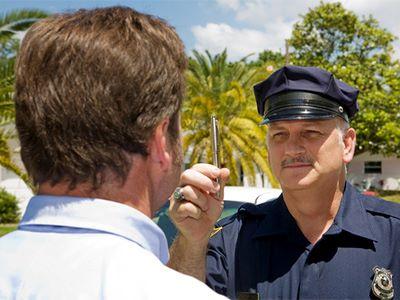 Being pulled over for a suspected DUI in California can be a nerve-wracking experience. One of the first things many law enforcement officers do is ask suspects to perform field sobriety tests (FSTs). While these tests may seem simple enough, they can have profound implications. A DUI conviction can dramatically change a person’s life, not for the better. It is essential that drivers understand their rights and what to expect during FSTs.
Being pulled over for a suspected DUI in California can be a nerve-wracking experience. One of the first things many law enforcement officers do is ask suspects to perform field sobriety tests (FSTs). While these tests may seem simple enough, they can have profound implications. A DUI conviction can dramatically change a person’s life, not for the better. It is essential that drivers understand their rights and what to expect during FSTs.
If you are ever arrested for DUI after failing an FST, contact an attorney immediately to understand the next steps in your case, which will likely include building a defense against the assertions of the police and prosecution.
What Are Field Sobriety Tests?
Field sobriety tests are standardized assessments law enforcement officers use to evaluate a driver’s level of impairment from drugs or alcohol. There are three types of FSTs commonly used in California, including:
-
The Horizontal Gaze Nystagmus Test – This tests for involuntary jerking movements of the eyeballs. Failing this test usually signals impairment due to alcohol consumption.
Considerations for a First-Time DUI in California
 Facing charges for driving under the influence (DUI) can be a very stressful and frightening experience, especially for first-time offenders. In California, penalties for DUI can be steep, and understanding your legal options is essential in order to fight the charges against you and to try and obtain a favorable case outcome. If you have been arrested for a first-time DUI, contacting a DUI defense attorney is essential, as a DUI conviction can have seriously detrimental consequences. While hiring a lawyer does not by any means guarantee an acquittal, it does ensure your rights and interests will be safeguarded at all times.
Facing charges for driving under the influence (DUI) can be a very stressful and frightening experience, especially for first-time offenders. In California, penalties for DUI can be steep, and understanding your legal options is essential in order to fight the charges against you and to try and obtain a favorable case outcome. If you have been arrested for a first-time DUI, contacting a DUI defense attorney is essential, as a DUI conviction can have seriously detrimental consequences. While hiring a lawyer does not by any means guarantee an acquittal, it does ensure your rights and interests will be safeguarded at all times.
Keep These Things in Mind
Here are some essential considerations if you have been charged with a first-time DUI, including:
-
Call a specialized DUI attorney – If you are facing a first-time DUI charge, you must hire an attorney specializing in DUI cases. Your attorney will work closely with you to develop your defense and choose the most appropriate strategy for your situation.
Essential Factors to Consider When Hiring a DUI Attorney
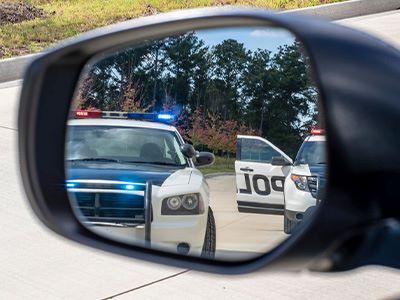
If you are facing a DUI charge, finding the right lawyer to represent you is essential. A DUI conviction can have serious adverse consequences, such as fines, license suspension, and even jail time. However, those involved in these cases can work with an attorney to protect their rights and best interests.
What to Consider When Selecting Your DUI Attorney
Here is what to consider when you are preparing to hire a DUI attorney, including:
-
Experience – Look for a DUI lawyer with a proven track record of successfully handling DUI cases. A lawyer who has been practicing for years will likely have the knowledge and experience to understand the complexities of DUI law and may have established relationships with prosecutors and judges.
-
Reputation – Research the lawyer’s reputation by reading online reviews and asking for references from past clients. You want a lawyer who is respected by their peers and has a reputation for being a formidable, effective advocate for their clients.
What Are the Drunk Driving Laws in California?
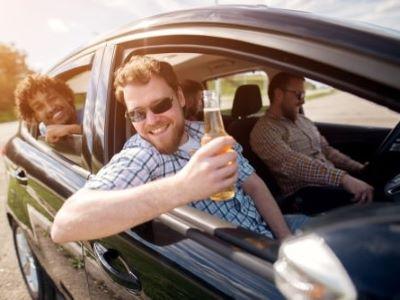
As law enforcement focuses on its battle with drunk driving, lawmakers will often introduce new bills in order to strengthen the tools that police have to catch drunk drivers and the penalties that the courts can enforce if the driver is found guilty. Some of these bills pass and some do not, but it can make it confusing to understand what the current DUI laws in California are. The following are some of the common FAQs about drunk driving that the legal team at Burglin Law Offices, P.C. are often asked.
What Is Considered Legally Intoxicated Under California Law?
Under current California, the blood alcohol concentration (BAC) level that could result in a DUI charge is:
-
Adult drivers 21 years of age – BAC of 0.08 percent or higher
-
Drivers under the age of 21 – BAC of 0.01 percent under California’s zero-tolerance laws
-
Drivers who hold a CDL – BAC of 0.04 percent or higher
5 Strategies for Challenging a License Suspension for Refusing a BAC Test
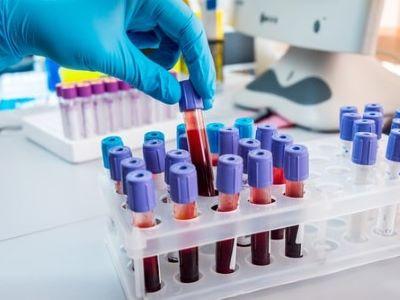
Most people know that you can lose your driver’s license if you are arrested for driving under the influence of alcohol or drugs (DUI) in California. However, many people do not realize that there might be a way to get the suspension of your driver’s license rescinded, but doing so generally requires the help of a qualified attorney.
You Have the Right to a Court Hearing Regarding Your Suspension
If you refuse blood-alcohol content (BAC) testing following a DUI arrest, the state of California imposes an automatic suspension of your driver’s license. For most people, this suspension lasts for one year, presuming that it is your first offense. The law in California, however, gives you the right to a court hearing to challenge the suspension. At this hearing, your lawyer can question police officers and present arguments as to why your license should not have been suspended.
California Underage DUI Laws
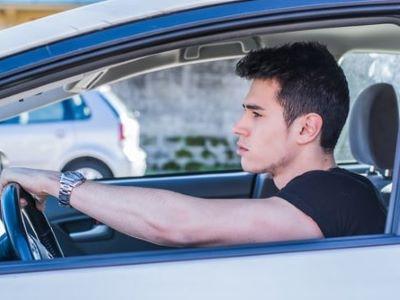 California prohibits drivers from operating while they are under the influence of drugs or alcohol. Both legal adults who are able to legally consume alcohol as well as people less than 21 years of age can be charged with driving under the influence (DUI). Adults in California face charges if their blood alcohol concentration (BAC) is 0.08 percent or greater. People under 21 years of age must comply with the zero-tolerance policy in California under which a person can face possible penalties for driving with a BAC of as little as 0.01 percent.
California prohibits drivers from operating while they are under the influence of drugs or alcohol. Both legal adults who are able to legally consume alcohol as well as people less than 21 years of age can be charged with driving under the influence (DUI). Adults in California face charges if their blood alcohol concentration (BAC) is 0.08 percent or greater. People under 21 years of age must comply with the zero-tolerance policy in California under which a person can face possible penalties for driving with a BAC of as little as 0.01 percent.
A zero-tolerance violation results in a one-year driver's license suspension. Alleged offenders with BACs of 0.05 percent or higher face a one-year suspension as well as mandatory alcohol education classes. If an underage driver has a BAC above 0.08 percent, he or she will face the same DUI penalties as adults over 21 years old.
Underage DUI Penalties
When a juvenile is charged with the standard DUI offense because of a BAC of 0.08 or more, or they are exhibiting signs of impairment to police officers, then the penalties will increase to fines as high as $1,000, three to five years misdemeanor probation, and a one-year suspension of driving privileges. Drivers under 21 years of age can also face driving under the influence of drugs (DUID) charges or possibly DUI causing injury, vehicular manslaughter while intoxicated, or DUI murder charges when they cause traffic accidents while impaired.
Common DUI Defenses in California
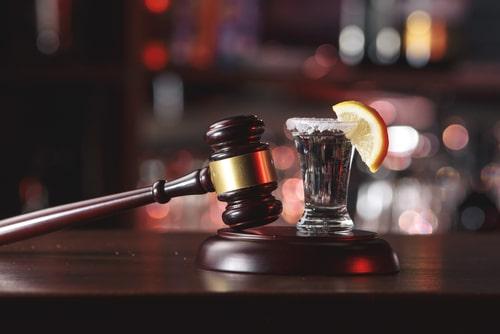 Many people who are arrested for driving under the influence (DUI) of alcohol or drugs in California become immediately fearful that a conviction is imminent. In actuality, many alleged offenders in these cases have a variety of defenses that could allow them to avoid conviction.
Many people who are arrested for driving under the influence (DUI) of alcohol or drugs in California become immediately fearful that a conviction is imminent. In actuality, many alleged offenders in these cases have a variety of defenses that could allow them to avoid conviction.
Prosecutors in these cases are motivated to try and portray alleged offenders as being particularly reckless, but a criminal defense attorney can make a world of difference in determining your defense options.
Possible Legal Defenses Against DUI Charges
When you are considering possible DUI defenses, these are some of the most common defenses:
-
Breath Test Errors — Numerous issues during a test can impact its validity, as testing devices may malfunction, environmental factors may contribute to false positives, and other issues can lead to test results being thrown out.
-
Rising Blood Alcohol — Blood alcohol rises over time. Someone who fails a breath test at the police station may be able to successfully argue that his or her BAC was below the legal limit when he or she was driving.
Reinstating Your License After a DUI
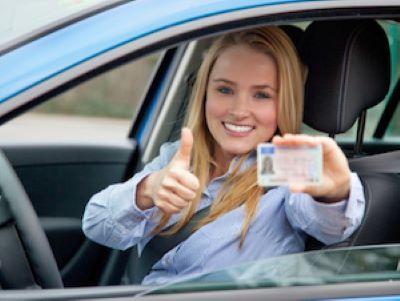 Few penalties associated with driving under the influence (DUI) arrests hit people as hard as driver’s license suspensions because the loss of driving abilities often dramatically changes how people operate on a daily basis. Anybody who is dealing with a DUI and needs help seeking driver’s license reinstatement in California will want to be sure that they retain legal counsel for help satisfying all of the many demands placed on people seeking restoration of their driving privileges.
Few penalties associated with driving under the influence (DUI) arrests hit people as hard as driver’s license suspensions because the loss of driving abilities often dramatically changes how people operate on a daily basis. Anybody who is dealing with a DUI and needs help seeking driver’s license reinstatement in California will want to be sure that they retain legal counsel for help satisfying all of the many demands placed on people seeking restoration of their driving privileges.
Those who are convicted of DUI offenses in California can be subject to a wide range of possible suspension periods, and a person is not automatically reinstated as a lawful driver once the suspension ends. There is instead a full reinstatement process a person must complete to be considered a lawful driver again.
How Reinstatement Works in California
Seeking reinstatement is not the same as challenging your suspension, which you can legally do after your DUI arrest when a police officer gives you a notice of suspension. You will have 10 days to request a California Department of Motor Vehicles (DMV) hearing that is overseen by a DMV employee. This type of hearing only requires the DMV to prove a person was arrested for violating state DUI laws by a preponderance of the evidence, which is a much lower standard than beyond a reasonable doubt.
When Do Police Have the Authority to Pull You Over for Alleged Drunk Driving?
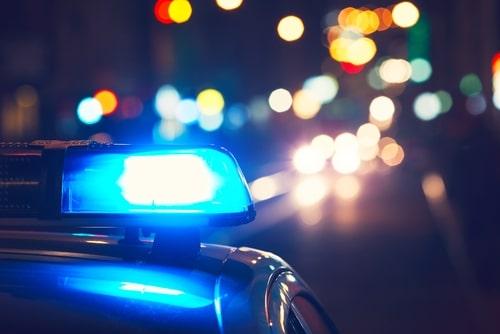 In the United States, we have important rights when it comes to our privacy. The Fourth Amendment protects us from unreasonable searches and seizures by the government. However, there are exceptions to this rule. One exception is when the police have reason to believe that a crime has been committed. It is crucial for everyone to know when police officers have the authority to conduct a traffic stop and assess a driver for signs of intoxication.
In the United States, we have important rights when it comes to our privacy. The Fourth Amendment protects us from unreasonable searches and seizures by the government. However, there are exceptions to this rule. One exception is when the police have reason to believe that a crime has been committed. It is crucial for everyone to know when police officers have the authority to conduct a traffic stop and assess a driver for signs of intoxication.
If a DUI traffic stop is conducted without justification, evidence obtained during the traffic stop may be unusable in court. This means that if an alleged drunk driver can prove that the officer who pulled him or her over had no grounds for doing so, any evidence of intoxication gathered during the stop may not be used against the driver. This could lead to the charges being dismissed entirely.
Reasonable Suspicion is Required for a Traffic Stop
To understand when police have the authority to pull someone over on suspicion of drunk driving, it is important to know what "reasonable suspicion" is. To initiate a traffic stop, police must have a reasonable suspicion that criminal activity is taking place. Actual violations of the law, such as speeding or running a red light, are justifications for conducting a traffic stop. Unsafe driving or driving that makes the officer suspect criminal activity may also justify a traffic stop. For example, if an officer witnesses a driver erratically moving from lane to lane, the officer may assume that the driver is under the influence of drugs or alcohol. Police must be able to specify the reason that he or she suspected someone of breaking the law. Officers are not permitted to pull someone over for no reason. Sobriety checkpoints are one exception to the reasonable belief requirement.
Driving on a Suspended License in California
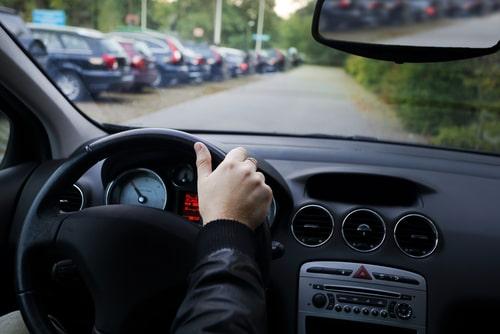 In California, a number of offenses are punishable by driver's license suspension. Conviction for driving under the influence (DUI) results in a six-month suspension while a second offense is punishable by a two-year suspension. Driver's license suspension is not always due to drunk driving, however. Getting into an accident without auto insurance, having too many points on your driver's license, and even failing to pay child support can lead to a license suspension.
In California, a number of offenses are punishable by driver's license suspension. Conviction for driving under the influence (DUI) results in a six-month suspension while a second offense is punishable by a two-year suspension. Driver's license suspension is not always due to drunk driving, however. Getting into an accident without auto insurance, having too many points on your driver's license, and even failing to pay child support can lead to a license suspension.
Penalties for Driving When Your Driver's License is Suspended
Once a person's license is suspended, driving any vehicle is prohibited. Driving with a suspended license is a criminal offense. The penalties for driving with a suspended license in California depend on the reason for the suspension and the number of prior offenses. A first offense is punishable by up to six months in jail and a fine of up to $1,000. A second offense is punishable by up to one year in jail and a fine of up to $2,500. However, the penalties are even more severe if someone with a suspended license gets into an accident in which another person is injured.
 415-729-7300
415-729-7300




